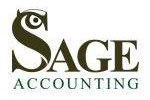Nil rate band guidance updated
With an ever increasing number of estates getting caught in the inheritance tax (IHT) net each year, knowing what exemptions and allowances exist and how to claim them is crucial. HMRC has just updated its guidance on transferring unused nil rate band. What do you need to know?

The tax-free allowance for IHT (the nil rate band) is currently £325,000 per person. As an individual can leave their estate to a spouse or civil partner free from IHT, it is possible to transfer the deceased’s unused nil rate band to the surviving spouse. This enables a married couple or civil partners to pass up to £650,000 worth of assets free from IHT on the second death. The claim must be made within two years of the second death. HMRC has released guidance on transferring the nil rate band because the process has changed if IHT is due, or full details of the estate need to be reported. Personal representatives can check if this is the case here. If so, the unused nil rate band is transferred by completing Forms IHT400 and IHT402. However, if full details are not needed, i.e. it is an excepted estate, there is a different process, which depends on the date of the second death.
Pre-1 January 2022. For deaths up until 31 December 2021, a claim to transfer the full unused nil rate band can only be made with Form IHT217. If less than the full nil rate band is being transferred, it will no longer qualify as an excepted estate and Forms IHT400 and IHT402 will be required as described above.
Post-1 January 2022. For deaths on or after 1 January 2022, you should claim when you apply for probate.
Further information can be found here.
Related Topics
-
Directors’ fees - can you escape PAYE?
You’ve been asked to join the board of a company in a purely advisory role. For tax and NI efficiency you want your fees to be paid to your own company. Does this arrangement fall foul of HMRC’s off-payroll rules?
-
P46 (car) deadline
-
Filing deadline for self-assessment tax returns

 This website uses both its own and third-party cookies to analyze our services and navigation on our website in order to improve its contents (analytical purposes: measure visits and sources of web traffic). The legal basis is the consent of the user, except in the case of basic cookies, which are essential to navigate this website.
This website uses both its own and third-party cookies to analyze our services and navigation on our website in order to improve its contents (analytical purposes: measure visits and sources of web traffic). The legal basis is the consent of the user, except in the case of basic cookies, which are essential to navigate this website.